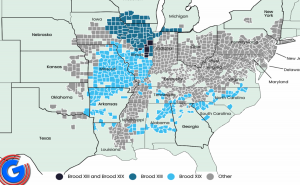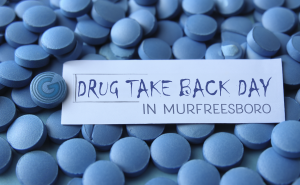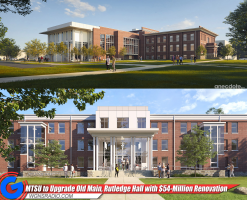A recent interview with Steve Sax, general manager of Murfreesboro Electric Department (MED), sparked discussion in the community about the possibility of municipal fiber-based Internet service and the benefits such a high-speed network could bring to the area.
MED has been laying the groundwork for its high-speed network since 2008, when it began linking distribution equipment with fiber optic cable. According to Sax, MED could have installed cables with as few as 12 strands of fiber, which would have met the utility's immediate needs. "Instead, we installed 144-strand fiber cables," he says. "The installation costs were virtually the same, and it created a core infrastructure that our city can build upon to create a powerful connected future."
The main role of this high-speed fiber optic network today is in allowing MED to communicate with and control various part of its distribution system, which results in more effective electric service. The system has the potential, however, to extend Internet connectivity throughout the city. "We've begun work on a fiber optics pilot program with MTSU that's very similar to what Google is doing in Nashville," Sax says.
MED has installed 19 miles of fiber throughout the city thus far, and is in the process of adding another 20. Sax believes this project will be key to Murfreesboro's continued growth in the coming years.
"Back when MED was founded, electricity was the crucial piece of infrastructure that our grandparents and great-grandparents worked to extend throughout the city," he says. "Now it's our turn. Broadband Internet is every bit as essential to keeping Murfreesboro competitive now as electricity was then. We welcome the opportunity to work with the city to continue enhancing the quality of life for our citizens."
The Fiber to the Home (FTTH) Council has projected that investments in FTTH service in North America from 2013 to 2017 will total $18 billion, three quarters of which will come from small independent utility companies.
Broadband is no longer a nice option, it is a necessity for cities that want to be competitive in terms of economic and community development. "The next time a major company like Amazon or General Mills is looking at Murfreesboro, broadband won't be an option on their list," says Philip Lim, MED's director of engineering. "They will expect it in order to consider investing in our city."
The impact of a fiber network goes well beyond job recruitment. "Our children need high-speed Internet to do their homework," Lim adds. "Small businesses need it to stay competitive. With a high-speed network in place, Murfreesboro citizens can benefit from telemedicine, advanced educational opportunities and multiple entertainment options. Fiber is the infrastructure that will drive our future, and MED is proud to be in a position to partner with our city to bring fiber technology to the people of Murfreesboro."
Earlier this year, the Federal Communications Commission ruled that city-owned broadband service can expand into areas that commercial providers have overlooked. That decision paves the way for a high-speed future in Murfreesboro, and MED is ready to work alongside the city in making it a reality.












